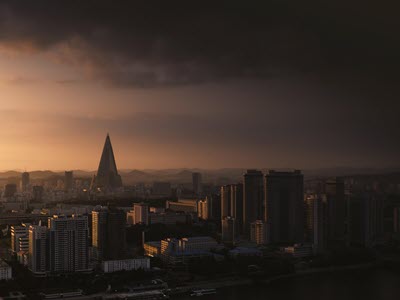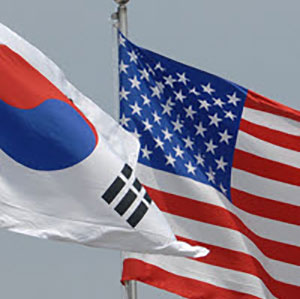Human Rights, Security, and U.S. Leadership on North Korea
Danielle Chubb explores current challenges facing efforts of NGOs outside of North Korea to document and combat human rights abuses taking place in the country. She outlines policy options for Congress to help restore and enhance the operational capacity of these NGOs.
North Korea remains one of the world’s most repressive countries, where systemic human rights abuses—from political prison camps to widespread torture and the suppression of fundamental freedoms—continue unabated. Civil society groups have played a crucial role in bringing attention to these abuses by compiling data on both historical and ongoing violations, as well as in supporting North Koreans living abroad.
The international community has long supported this work, particularly the United States, which is uniquely positioned to influence international policy and secure the critical funding that underpins the efforts of these NGOs. This briefing explores current challenges, including recent funding cuts that jeopardize decades of progress, and outlines policy options to restore and strengthen support. By reaffirming its commitment to human rights and democratic values, the U.S. Congress can help ensure that important efforts to improve conditions in North Korea can continue.
North Korean Human Rights
For many years, the full extent of human rights abuses in North Korea was hidden behind a veil of secrecy. The Kim Jong-un regime’s opaque nature leaves its population particularly vulnerable, while also making it difficult for external observers to document and verify allegations of abuse. Over decades, civil society groups have built extensive networks, gathering information, writing reports, compiling databases, and holding events to raise public awareness. This work led to the initiation of the UN Commission of Inquiry on Human Rights in the Democratic People’s Republic of Korea, whose 2014 report has since served as a definitive document on the matter. Its findings detailed the use of political prison camps, torture, executions, arbitrary detentions, severe restrictions on freedom of thought and religion, and the manipulation of food as a tool of control, providing the evidentiary basis for international action.
As well as advocating on human rights issues, civil society organizations, which include “defector”-led groups such as NK Watch, have also become an unofficial but key source of information for U.S. policymakers and government agencies about the function and priorities of the Kim regime. As North Korea has turned increasingly inward since the outbreak of the Covid-19 pandemic, which saw the country close its borders and Western embassies shutter their doors (most of them remaining without diplomatic presence in the country), the information-sharing capacity of the North Korean human rights community has become more critical than ever.
Challenges Facing North Korean Human Rights Advocacy
The high level of repression in North Korea means that NGO efforts to document and combat human rights abuses take place outside the country. It also means that these groups are not eligible for most funding sources, which require a ground presence in the countries they target. The core North Korean human rights community is, by necessity, based in Seoul. Groups such as the Database Center for North Korean Human Rights and Citizens’ Alliance for North Korean Human Rights compile evidence of violations from interviews with refugees, engage in international advocacy, and offer direct support to North Korean defectors. Meanwhile, organizations like Unification Media Group provide critical insights through firsthand accounts from within the country through Daily NK and other publications and broadcasts.
Historically, reliable U.S. funding, primarily through the National Endowment for Democracy and the State Department’s Bureau of Democracy, Human Rights, and Labor, has enabled these NGOs to attract qualified professionals, cover operational costs, maintain sustainable staffing, and pursue long-term projects. In addition to their human rights work, these groups supply vital intelligence that aligns with U.S. national interests by offering ground-level insights into the inner workings of the North Korean regime. This intelligence plays an important role in shaping U.S. policy responses related to national security and regional stability.
However, recent funding cuts have precipitated a crisis. Many organizations have been forced to downsize, suspend key projects, or even consider closing their operations entirely. These abrupt reductions in funding have caused operational paralysis: projects that once thrived are now on hold, and the continuous flow of critical information about North Korea is at risk. The disruption of this well-coordinated network of NGOs not only hampers efforts to expose human rights violations but also erodes decades of accumulated expertise and grassroots connections that are essential for both advocacy and national security intelligence. The resultant gap in information ultimately provides the North Korean regime with more leeway to operate without effective external scrutiny, further complicating efforts to hold it accountable.
Policy Options
Given these challenges, there are several options for Congress to consider that could help restore and enhance the operational capacity of North Korean human rights NGOs. One approach is to reinstate and even bolster existing funding streams provided by agencies like the National Endowment for Democracy and the State Department. In addition to shielding these resources from sudden policy changes, a more stable financial foundation is needed to support operations and the dedicated staff over the long term.
On an international level, stronger coordination with partners, such as Indo-Pacific and European allies and multilateral institutions, could amplify the impact of monitoring and advocacy efforts. Collaborative funding initiatives and improved intelligence sharing would foster a more unified and responsive policy approach. In particular, enhanced communication channels between U.S. agencies, South Korean civil society, and transnational NGO networks could create a more comprehensive strategy that balances advocacy, security, and diplomacy.
Danielle Chubb is Associate Professor in International Relations at Deakin University in Melbourne, Australia.



